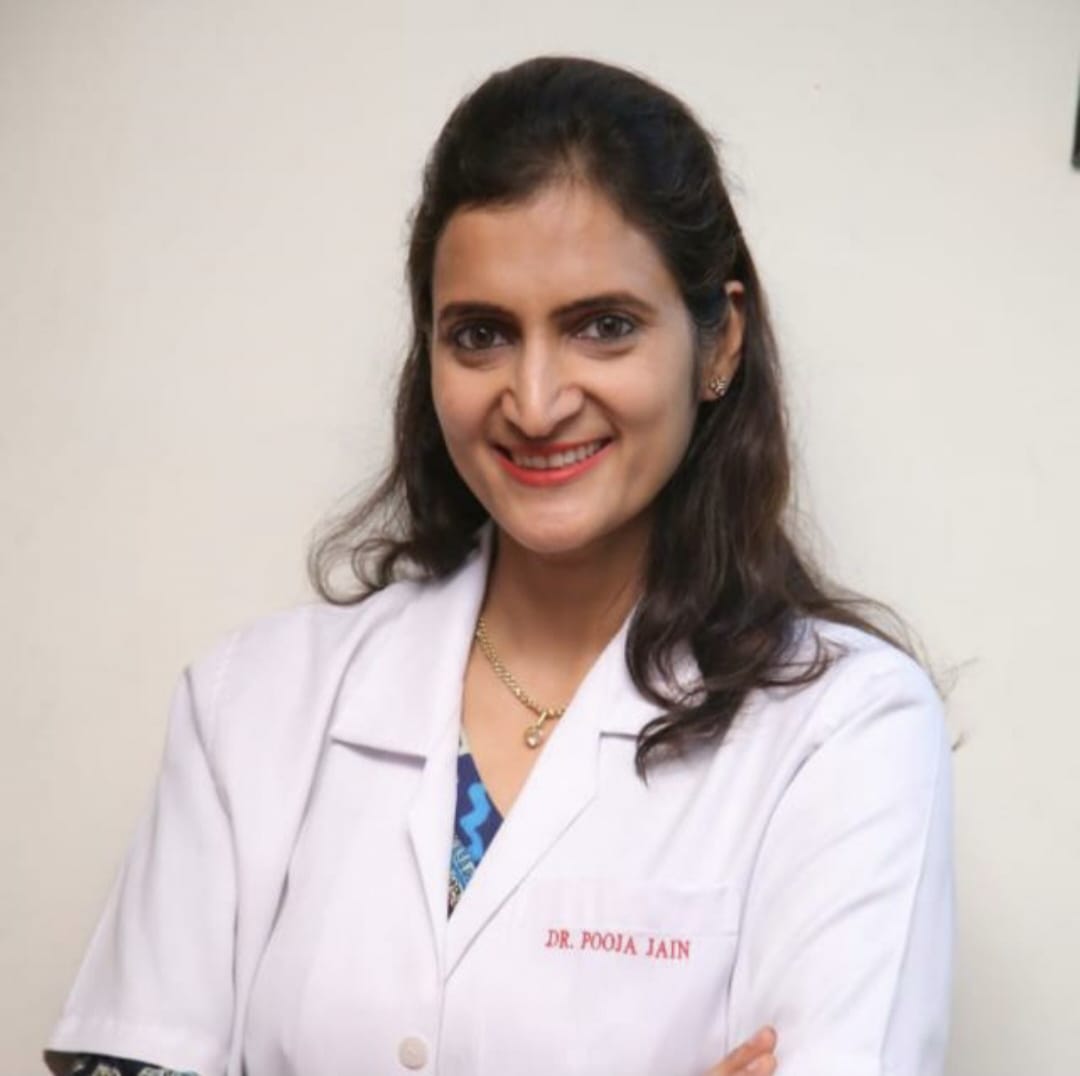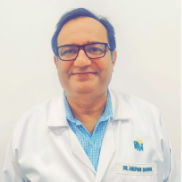Complete Guide to Vulvodynia: Understanding, Managing, and Finding Relief
Discover the comprehensive guide to vulvodynia, covering everything you need to know about understanding this condition, managing symptoms, and finding effective relief. Learn about causes, treatment options, and expert advice to regain comfort and improve your quality of life.

Written by Dr.Sonia Bhatt
Last updated on 3rd Jul, 2025

Vulvodynia is a chronic pain condition affecting the vulvar area, the external part of the female genitalia. This condition can be incredibly distressing and disruptive, impacting a person's quality of life, sexual health, and emotional well-being. Despite its prevalence, vulvodynia remains underdiagnosed and misunderstood. This comprehensive guide aims to provide a detailed overview of vulvodynia, including its symptoms, potential causes, diagnosis, treatment options, and strategies for managing the condition.
What is Vulvodynia?
Vulvodynia is defined as chronic vulvar pain lasting at least three months without an identifiable cause. The pain can be described as burning, stinging, irritation, or rawness and can be localised to one specific area or generalised across the entire vulva. It may occur spontaneously or be provoked by activities such as intercourse, tampon insertion, sitting, or physical exercise.
Types of Vulvodynia
Vulvodynia can be classified into different types based on the location and nature of the pain:
Generalised Vulvodynia: Pain is felt over a large area of the vulva and can be constant or intermittent.
Localised Vulvodynia: Pain is localised to a specific area, such as the vestibule (vestibulodynia), clitoris (clitorodynia), or other distinct regions.
Provoked Vulvodynia: Pain occurs in response to touch or pressure, such as during sexual intercourse, tampon insertion, or sitting.
Unprovoked Vulvodynia: Pain occurs spontaneously without any apparent trigger.
What Causes Vulvodynia?
The exact cause of vulvodynia is not well understood, and it is likely multifactorial. Several potential factors may contribute to the development of vulvodynia, including:
Nerve Injury or Irritation: One possible cause is nerve injury or irritation. The vulva is richly supplied with nerves, and if these nerves become damaged or overly sensitive, they may send pain signals even when there’s no obvious injury. This type of nerve-related pain is known as neuropathic pain.
Infections and Sensitivities: While infections don’t cause vulvodynia, some women feels that chronic or recurring yeast infections, bacterial vaginosis, or urinary tract infections can trigger or worsen vulvodynia symptoms. Additionally, some women experience increased sensitivity to common irritants such as soaps, lotions, or laundry detergents.
Hormonal Changes: Changes in hormones, especially those related to menopause, pregnancy, or the use of hormonal birth control, may contribute to vulvodynia. Estrogen levels play a key role in maintaining the health of the vulvar tissues, and when these levels drop (as in menopause), the vulva may become thinner and more sensitive, leading to increased pain.
Pelvic Floor Dysfunction: Tight or overactive pelvic floor muscles can contribute to vulvodynia. These muscles are responsible for supporting the pelvic organs and controlling bladder and bowel function. When the muscles become tense, weak, or out of balance, it can lead to pain in the vulva and other pelvic areas.
Psychological Factors: Emotional and psychological factors, such as stress, anxiety, or a history of trauma (including sexual abuse), can heighten the perception of pain in the body. These factors don’t cause vulvodynia directly, but they can worsen existing symptoms.
Genetics: Some women may be more likely to develop vulvodynia due to genetic factors. If you have a family history of pelvic health issues or conditions such as irritable bowel syndrome (IBS), you may be at a higher risk for vulvodynia.
Symptoms of Vulvodynia
The main symptom of vulvodynia is pain in the vulvar area, which may feel different depending on the person and the type of vulvodynia. Common symptoms include:
Burning or stinging sensation: Often described as a hot, irritated feeling that doesn’t go away.
Pain during or after sexual intercourse (dyspareunia): Many women with vulvodynia experience discomfort or pain during penetration or after sexual activity.
Pain while sitting: The pressure of sitting can sometimes trigger or worsen vulvodynia symptoms.
Persistent soreness or tenderness: A dull, aching pain that can be constant or intermittent.
Itching and redness: Though not as common, some women may notice swelling or itching around the vulva.
If you experience these symptoms and they persist for more than a few months, it’s important to consult with a healthcare provider to rule out other potential causes and seek proper treatment.
Consult Top Doctor for Sexual Health
Diagnosing Vulvodynia
Getting a diagnosis of vulvodynia can be challenging because the condition doesn’t present with visible signs like rashes or lesions. Your doctor will start with a thorough medical history and may perform a physical exam to check for areas of tenderness in the vulva. Additional tests, such as a pelvic ultrasound, may be used to rule out infections or other conditions.
In some cases, your doctor may perform a Q-tip test, where a cotton swab is gently pressed against the vulva to identify sensitive areas. The goal is to pinpoint the location and severity of the pain.
Treatment Options for Vulvodynia
While there is no cure for vulvodynia, several treatment options can help manage symptoms and improve quality of life. Treatment is often multimodal and tailored to the individual's specific needs and preferences. Here are some common treatment approaches:
1. Medications
Various medications can be used to manage vulvodynia symptoms, including:
Topical Treatments
Topical Anesthetics: Lidocaine or other numbing agents can be applied to the affected area to provide temporary pain relief.
Topical Estrogens: Estrogen creams may be prescribed for postmenopausal women to improve vulvar health and reduce pain.
Topical Steroids: Corticosteroid creams can help reduce inflammation and pain.
Oral Medications
Antidepressants: Tricyclic antidepressants (e.g., amitriptyline) or selective serotonin and norepinephrine reuptake inhibitors (e.g., duloxetine) can help manage chronic pain.
Anticonvulsants: Medications such as gabapentin or pregabalin can help reduce nerve pain.
2. Physical Therapy
Pelvic floor physical therapy can be beneficial for individuals with vulvodynia. A specialised physical therapist can provide exercises and techniques to relax and strengthen the pelvic floor muscles, improve blood flow, and reduce pain. Biofeedback and manual therapy may also be used to address muscle dysfunction and promote healing.
3. Cognitive-Behavioral Therapy (CBT)
Cognitive-behavioral therapy (CBT) can help individuals manage the emotional and psychological aspects of vulvodynia. CBT focuses on identifying and changing negative thought patterns and behaviours, reducing stress, and developing coping strategies to manage pain. Mindfulness and relaxation techniques may also be incorporated into the therapy.
4. Lifestyle Modifications
Making certain lifestyle changes can help manage vulvodynia symptoms and improve overall well-being. These may include:
Wearing Loose-Fitting Clothing: Avoiding tight clothing and opting for loose, breathable fabrics can reduce irritation and discomfort.
Using Gentle Personal Care Products: Choosing unscented, hypoallergenic products for personal hygiene can prevent irritation.
Avoiding Triggers: Identifying and avoiding activities or factors that exacerbate pain, such as certain exercises or prolonged sitting, can help manage symptoms.
Practising Good Vulvar Hygiene: Gently cleaning the vulvar area with water and avoiding harsh soaps or douches can prevent irritation.
5. Alternative Therapies
Some individuals with vulvodynia find relief through alternative therapies such as acupuncture, chiropractic care, or naturopathy. These therapies can be used in conjunction with conventional treatments to provide a holistic approach to pain management.
6. Surgical Interventions
In rare and severe cases, surgical interventions may be considered when other treatments have been ineffective. Surgical options may include:
Vestibulectomy: Removal of the affected tissue in the vestibule (area around the vaginal opening) to reduce pain.
Nerve Blocks: Injections of anaesthetic or steroid medications to block pain signals from specific nerves.
Conclusion
Vulvodynia is a complex and often misunderstood condition that can significantly impact a person's quality of life. Understanding the symptoms, potential causes, and available treatment options is crucial for managing the condition effectively. While there is no cure for vulvodynia, a combination of medical treatments, physical therapy, lifestyle modifications, and emotional support can help individuals manage their symptoms and improve their well-being. If you or someone you know is experiencing chronic vulvar pain, it is important to seek professional help and explore the available resources to find relief and improve quality of life.
Consult Top Urology
Consult Top Doctor for Sexual Health

Dr. Sridevi Matta
Obstetrician and Gynaecologist
28 Years • MS ( OBG ), DGO, DNB Obstetrics & Gynaecology
Chinagadila
Apollo Hospitals Health City Unit, Chinagadila
(175+ Patients)

Dr. Debashree Saha
Obstetrician and Gynaecologist
4 Years • MBBS, MS (Obstetrics & Gynaecology)
Kolkata
DR. DEBASHREE SAHA Clinic, Kolkata

Dr. Mona Yadav
Obstetrician and Gynaecologist
19 Years • MBBS, MD (Obstetrics & Gynaecology)
Dombivli
Nulife multispeciality, Dombivli

Dr. Pooja Jain
Obstetrician and Gynaecologist
24 Years • MBBS , MD (Obstetrics & Gynaecology)
Delhi
AKSHANYA GYNAECARE, Delhi
(200+ Patients)

Dr. Smrithika L
Obstetrician and Gynaecologist
6 Years • MBBS , MS , DNB (Obstetrics and gynaecology)
Bengaluru
Apollo Clinic, Sarjapur Road, Bengaluru
Consult Top Urology

Dr. Rohit Bhattar
Uro Oncologist
14 Years • MBBS, MS, MCh (Urology), Fellowship in Uro-oncology and Robotic Urology (United Kingdom)
Ahmedabad
Apollo Hospitals Gandhinagar, Ahmedabad
(75+ Patients)
Dr. Mohammed Rehan Khan
Urologist
8 Years • MBBS, MS (General Surgery), Mch (Urology)
Barasat
Diab-Eat-Ease, Barasat
Dr. J Chaithanya
Urologist
6 Years • MBBS MS GENERAL SURGERY MCH UROLOGY
Bengaluru
Apollo Medical Center, Marathahalli, Bengaluru

Dr. Dhruv B. Patel
Urologist
12 Years • MBBS, MS, DrNB (Urology - IKDRC, Ahmedabad)
Ahmedabad
Apollo Hospitals Gandhinagar, Ahmedabad

Dr Anupam Sharma
Urologist
18 Years • MBBS, MS(Gen Surgery), DNB (Urology)
Delhi
Apollo Hospitals Indraprastha, Delhi